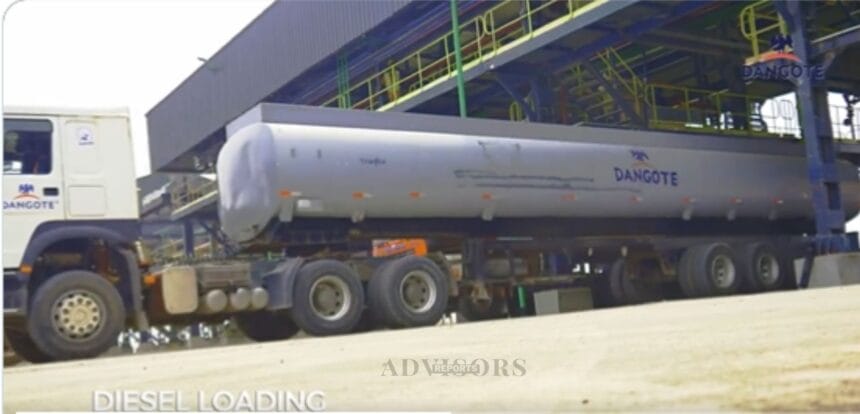Nigerian Midstream and Downstream Petroleum Regulatory Authority (NMDPRA) has explained that the recent adjustment to the Sulphur content standards for diesel from 200 parts per million (ppm) to around 650 ppm is part of a regional harmonisation effort, not a relaxation of regulations for local refineries.
This is coming on the sideline of the concerns raised in a report by S&P Global which noted a significant shift in the West African fuel market after Nigeria altered its maximum diesel Sulphur content from 200 parts per million (ppm) to around 650 ppm, lowering its standards to accommodate domestically produced diesel from Dangote which exceeds the 200-ppm cap.
The NMDPRA emphasised that the regulation is part of a long-term goal of limiting Sulphur content to 50 ppm in the future. It also noted that the enforcement of the regulation will be conducted at the port of origin through the import documentation process.
Advisors Reports therefore noted that that regulation was not affect the Dangote refinery, as it will be granted a waiver to supply 600-ppm diesel for the domestic market, pending when it will be able to produce Euro 5 oil products.
The NMDPRA in a statement in defense of its action stated that it has only adhered to a 2020 decision by the Economic Community of West African States (ECOWAS) which mandated a gradual shift to cleaner fuels across the region.
“So, a local refinery with a 650-ppm Sulphur in its product is permissible and safe under the ECOWAS rule until January next year where a uniform standard would apply to both the locally refined and imported products outside West Africa”, Ahmed said.
Ahmed said importers were notified of the progressive reduction in allowable Sulphur content, reaching 200 ppm this month from 300 ppm in February.
Importers were previously permitted to bring in diesel with a Sulphur content between 1,500 ppm and 3,000 ppm.
Advisors Reports gathered that Dangote Petroleum Refinery commenced Diesel rollout in Lekki via land on April 10, 2024.
The facility was configured to produce Euro V specification oil products, which means its road fuels will contain no more than 10 parts per million (ppm) of Sulphur, which is in line with the stringent regulatory standards for Sulphur content in diesel in Western countries.
Our correspondents gathered that Dangote refinery has taken advantage of the relaxed quality controls for diesel by the Nigerian government which reportedly was responsible for the reduced domestic prices.
According to a recent report by S&P Global, high-Sulphur diesel from the Dangote refinery led to the decision by the refiner to lessen domestic prices from ₦1,200 to ₦1,000 and now to ₦940 per litre.
Low-Sulphur diesel is below 500 ppm and is considered cleaner for the environment; while high-Sulphur diesel is used for off-road purposes because it causes progressive damage to the engine of machinery.
The report by S&P Global revealed that three market sources confirmed the Dangote refinery’s first diesel supplies have been marketed with a Sulphur content of around 650 parts per million (ppm), as the NMDPRA has provided a route to market for early supplies from the refinery ahead of secondary unit start-ups for petrol and low-sulfur diesel.
The report further showed that Dangote’s low-sulfur diesel production remains contingent on the start-up of its key distillate hydrocracker unit.
The Nigerian regulator has allegedly pressured Dangote to alleviate surging fuel import costs amid the rapid depreciation of the Naira.



